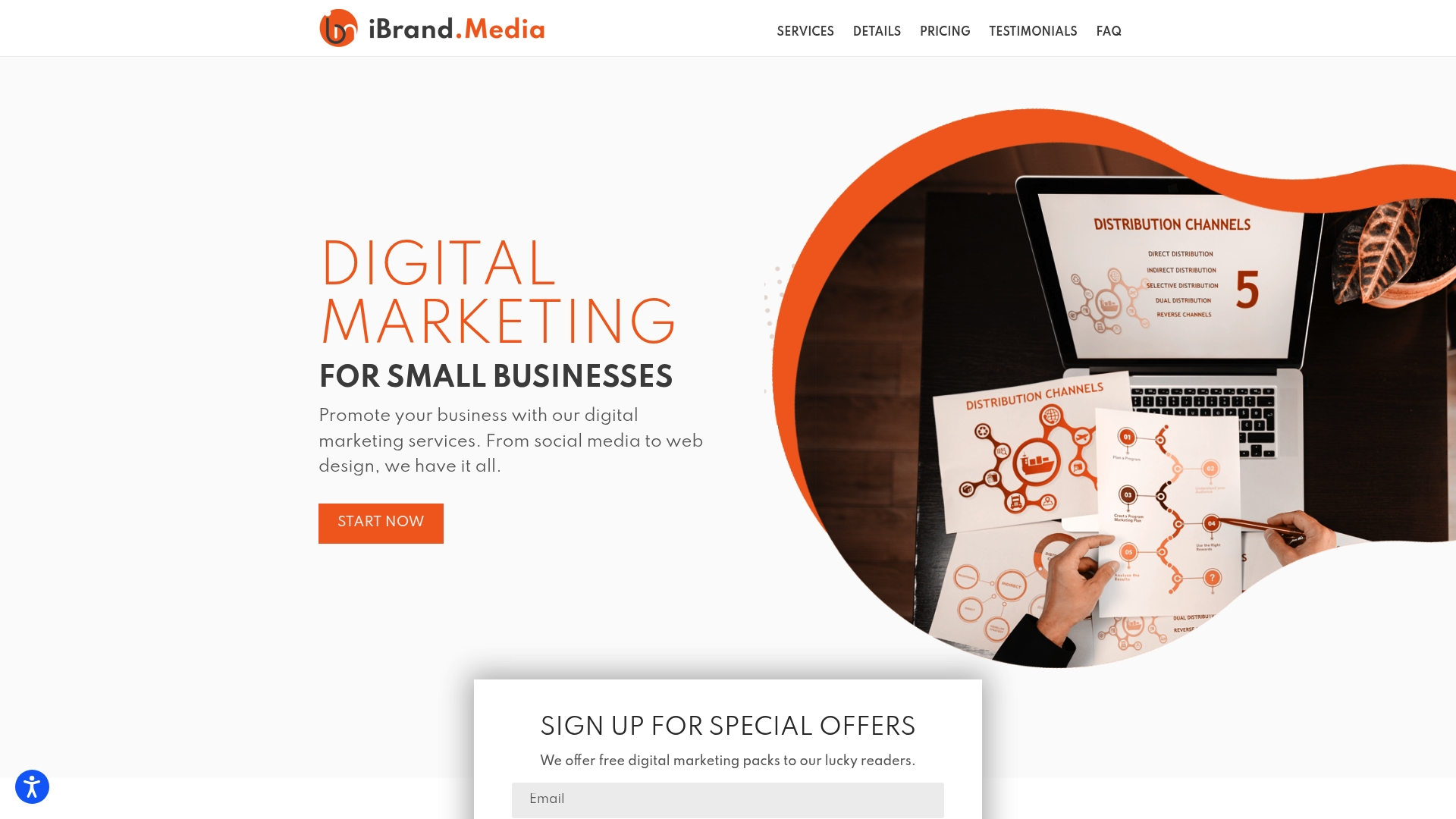Content marketing is changing the way businesses connect with people. Instead of paying for constant ads that interrupt and annoy, brands are focusing on what truly matters. Over 80 percent of marketers now believe content is a core business strategy. Most people expect the usual sales push and ignore it, right? The twist is content marketing works by offering real value, turning everyday readers into loyal fans before anyone even mentions a sale.
Table of Contents
- What Is Content Marketing And Its Purpose?
- Why Content Marketing Matters For Small Businesses?
- Key Concepts Of Content Marketing: Strategy And Audience
- How Content Marketing Works: Platforms And Formats
- Real-World Examples Of Effective Content Marketing
Quick Summary
| Takeaway | Explanation |
|---|---|
| Content marketing builds trust and authority. | By consistently delivering valuable content, businesses establish themselves as trusted experts in their field. |
| Audience understanding is crucial for success. | Deeply analyzing the target audience helps in creating relevant content that addresses their specific needs and preferences. |
| Content marketing is cost-effective for small businesses. | It allows companies to reach audiences without the high costs associated with traditional advertising methods. |
| Engagement through diverse content formats increases effectiveness. | Utilizing various formats like videos, infographics, and blogs keeps the audience interested and caters to different learning styles. |
| Follow the 80/20 rule in content creation. | Allocate 80% of content to informing and entertaining while reserving 20% for promotion to foster connections and engagement with the audience. |
What is Content Marketing and Its Purpose?
Content marketing represents a strategic approach businesses use to create and distribute valuable, relevant content that attracts and engages their target audience. Unlike traditional advertising, which interrupts consumers, content marketing focuses on providing genuine value through informative, helpful materials that naturally draw potential customers closer to a brand.
Understanding the Core Purpose
The fundamental purpose of content marketing goes beyond simple promotion. It aims to build trust, establish authority, and create meaningful connections with potential customers. By consistently delivering high-quality content that addresses specific audience needs and challenges, businesses can position themselves as industry experts and trusted resources.
Discover effective marketing approaches for small businesses that leverage content to drive engagement and growth. These strategies help transform passive readers into active, interested prospects.
Key Strategic Elements
Content marketing operates on several critical principles that distinguish it from traditional marketing approaches:
- Audience-Centric Approach: Creating content that directly addresses audience pain points and interests
- Value-Driven Communication: Providing genuine insights, solutions, and educational materials
- Long-Term Relationship Building: Focusing on sustained engagement rather than immediate sales
According to research from ResearchGate, content marketing serves as a powerful strategy for driving profitable customer actions while simultaneously building strong brand value. By prioritizing meaningful communication, businesses can transform their marketing from interruptive messaging to valuable conversations that customers actually want to engage with.
Why Content Marketing Matters for Small Businesses?
Small businesses operate in a highly competitive marketplace where standing out requires more than traditional advertising. Content marketing offers a strategic approach to differentiate themselves, connect with potential customers, and build sustainable growth without requiring massive financial investments.
Cost-Effective Marketing Strategy
For small businesses with limited marketing budgets, content marketing represents an incredibly efficient way to reach target audiences. Learn about comprehensive digital marketing strategies that can transform how businesses approach online promotion. By creating valuable, informative content, businesses can attract customers organically, reducing expensive advertising costs and generating long-term engagement.
Building Trust and Credibility
Content marketing allows small businesses to showcase their expertise and industry knowledge. By consistently producing high-quality, relevant content, businesses can establish themselves as trusted authorities in their field. According to research from Michigan State University Extension, this approach helps improve visibility in search engine results and reach broader audiences more effectively.
Key Benefits for Small Business Growth
The strategic advantages of content marketing for small businesses are significant:
- Enhanced Online Visibility: Improve search engine rankings through consistent, quality content
- Customer Education: Provide valuable insights that help potential customers make informed decisions
- Brand Differentiation: Establish a unique voice and perspective in a crowded marketplace
- Cost-Effective Audience Engagement: Generate interest and leads without substantial advertising expenditures
By adopting a content marketing approach that follows the 80/20 rule – where 80% of content focuses on informing and entertaining, and only 20% on direct promotion – small businesses can create meaningful connections with their target audience and drive sustainable growth.

Key Concepts of Content Marketing: Strategy and Audience
Content marketing is not a one-size-fits-all approach but a nuanced strategy that requires deep understanding of audience needs, business objectives, and effective communication techniques. Successful content marketing hinges on developing a comprehensive strategy that aligns business goals with audience expectations.
Developing a Strategic Framework
A robust content marketing strategy begins with clear goal setting and audience analysis. Explore our comprehensive guide to creating a marketing plan that helps businesses map out their content approach systematically. The strategic framework involves understanding target demographics, identifying content channels, and establishing measurable objectives that drive meaningful engagement.
Audience-Centric Content Development
Understanding the target audience is paramount in content marketing. Businesses must dive deep into audience personas, analyzing their pain points, interests, preferences, and online behaviors. According to research from ResearchGate, effective content strategy relies on comprehensive market research and audience segmentation to create targeted, resonant content.
Essential Strategic Components
Successful content marketing strategies incorporate several critical elements:
- Audience Persona Development: Creating detailed profiles that capture demographic and psychographic characteristics
- Content Mapping: Aligning content types with different stages of customer journey
- Channel Selection: Identifying most effective platforms for target audience engagement
- Performance Metrics: Establishing clear, measurable goals for content effectiveness
By understanding these core strategic principles, businesses can craft content that not only attracts attention but also builds meaningful connections with their target audience, driving long-term engagement and business growth.
To clarify the main components that form a strong content marketing strategy, the following table summarizes the essential strategic elements discussed in the article.
| Strategic Component | Description |
|---|---|
| Audience Persona Development | Creating detailed profiles to understand demographic and psychographic traits |
| Content Mapping | Aligning various types of content to different stages of the customer journey |
| Channel Selection | Choosing the most effective platforms based on the target audience |
| Value-Driven Communication | Delivering insights, solutions, and educational content |
| Performance Metrics | Setting clear, measurable goals to track content effectiveness and adjust strategy |
How Content Marketing Works: Platforms and Formats
Content marketing functions through a strategic blend of digital platforms and diverse content formats designed to engage and inform target audiences. The core mechanism involves creating valuable, relevant content that attracts, educates, and ultimately converts potential customers across multiple digital touchpoints.
Digital Platforms and Content Distribution
Explore advanced social media marketing strategies that maximize content reach and engagement. Digital platforms serve as critical channels for content distribution, each offering unique opportunities to connect with specific audience segments. These platforms range from websites and blogs to social media networks, email newsletters, and video sharing platforms, enabling businesses to reach audiences through their preferred communication channels.

Content Format Diversity
Effective content marketing leverages a wide array of content formats to maintain audience interest and address different learning preferences. According to research from ResearchGate, successful content strategies incorporate multiple formats to maximize audience engagement and information retention.
Key Content Marketing Platforms and Formats
Business content marketing encompasses several essential platforms and formats:
- Written Content: Blogs, articles, whitepapers, case studies
- Visual Content: Infographics, images, designed graphics, presentations
- Video Content: Tutorials, explainer videos, interviews, webinars
- Interactive Content: Quizzes, surveys, calculators, interactive tools
By strategically selecting and combining platforms and formats, businesses can create a comprehensive content ecosystem that delivers information, builds trust, and guides potential customers through their decision-making journey.
The following table compares the key content marketing platforms and content formats referenced in the article, highlighting their primary uses and roles in engaging audiences.
| Platform/Format | Example Types | Primary Role |
|---|---|---|
| Written Content | Blogs, articles, whitepapers, case studies | Educate and inform through in-depth text |
| Visual Content | Infographics, images, presentations | Simplify complex ideas, attract attention |
| Video Content | Tutorials, explainer videos, webinars | Demonstrate, engage, and explain visually |
| Interactive Content | Quizzes, surveys, calculators, tools | Promote participation and personalized info |
Real-World Examples of Effective Content Marketing
Content marketing transcends theoretical concepts when businesses successfully transform strategic approaches into compelling narratives that engage audiences and drive meaningful results. Real-world examples demonstrate how diverse organizations leverage content to build brand awareness, establish credibility, and connect with their target markets.
Innovative Content Strategies
Discover creative content ideas for small business growth that can inspire your marketing approach. Successful content marketing requires understanding how different brands craft unique storytelling methods that resonate with their specific audience segments, turning complex marketing principles into tangible, relatable experiences.
Breakthrough Content Marketing Campaigns
According to research highlighting successful marketing initiatives, several brands have distinguished themselves through exceptional content marketing strategies. GoPro’s ‘Million Dollar Challenge’ exemplifies this approach by encouraging users to submit videos shot with their cameras, transforming customers into content creators and generating authentic, engaging marketing material.
Key Elements of Successful Content Marketing Examples
Effective content marketing campaigns share several critical characteristics:
- User Engagement: Creating content that actively involves the audience
- Authentic Storytelling: Developing narratives that connect emotionally with viewers
- Value-Driven Approach: Providing genuine insights and solutions
- Multi-Platform Distribution: Leveraging diverse channels to maximize reach
These examples demonstrate that successful content marketing is not about promoting products directly, but about building relationships, solving problems, and creating meaningful connections with target audiences through strategic, thoughtful content creation.
Ready To Put Content Marketing Principles Into Action?
Many small businesses understand the basics of content marketing but struggle to truly stand out online. As you learned in this article, building trust, crafting audience-focused content, and delivering value are key—yet turning these strategies into results is not always straightforward. Outdated tactics, lack of time, and limited resources can make it hard for your business to engage the right people or grow sales.
Explore more insights on Uncategorized | Ibrandmedia where actionable marketing know-how turns into real business results.

Let us help you bridge the gap from learning content marketing theory to launching powerful digital campaigns that deliver new leads and customers. Our team at ibrand.media specializes in affordable, results-driven solutions customized to your goals. Don’t let another customer slip away—contact us today and discover how we turn your content strategy into growth.
Frequently Asked Questions
What is content marketing?
Content marketing is a strategic approach focused on creating and distributing valuable, relevant content to attract and engage a target audience, moving away from traditional interruptive advertising.
Why is content marketing important for small businesses?
Content marketing is important for small businesses as it helps build trust, improve online visibility, and engage potential customers effectively while being a cost-effective marketing strategy.
What are key elements of a successful content marketing strategy?
Key elements include audience persona development, content mapping across the customer journey, channel selection for distribution, and establishing performance metrics for measuring effectiveness.
How can businesses measure the success of their content marketing efforts?
Success can be measured through performance metrics such as website traffic, engagement rates, conversion rates, and tracking the effectiveness of content in moving potential customers through the buyer’s journey.

Recent Comments